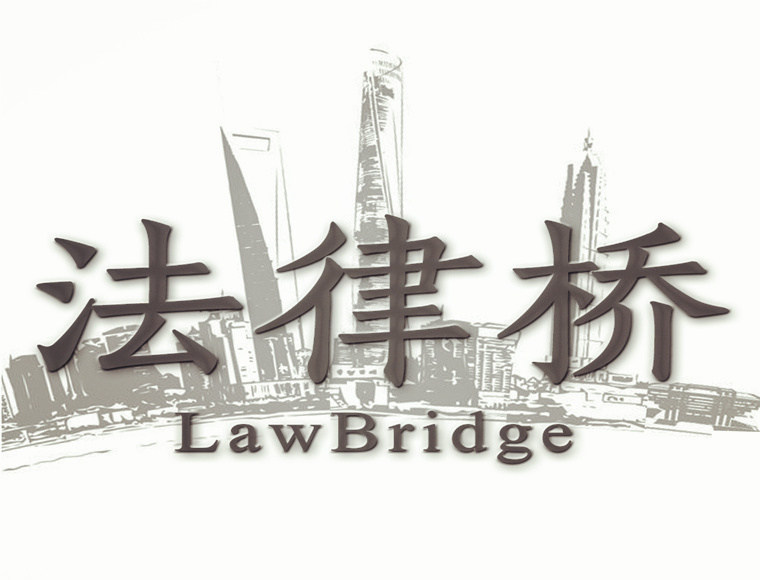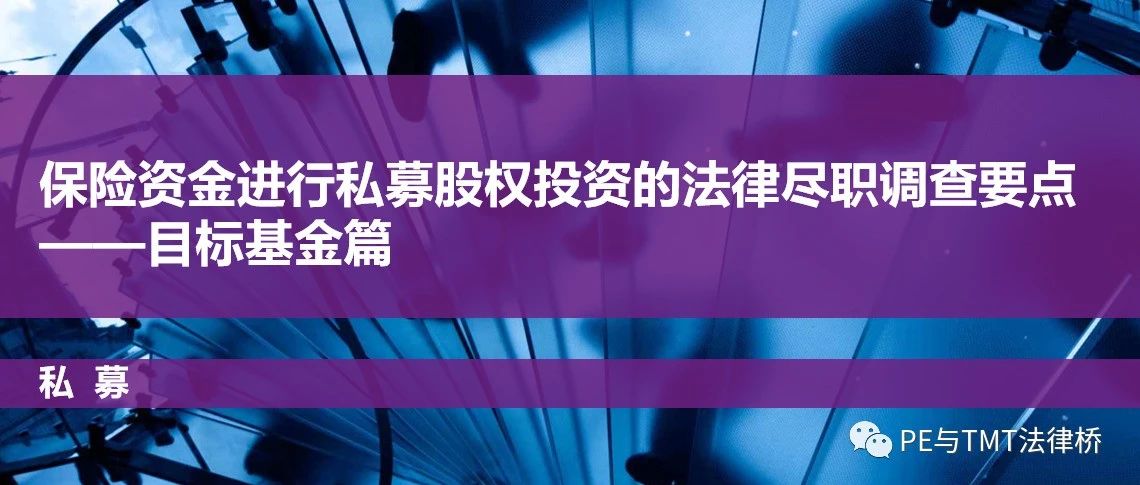How to remove shareholders who "do not contribute" or "withdraw capital"?
Introduction[1]
After the company’s registered capital was changed from the “subscription system” to the “subscription system”, in business practice, there are always some shareholders who are not so reliable[2], either delaying the payment of capital contributions according to the provisions of the articles of association, or contributing capital first, Then withdraw capital in various ways. Such an approach not only harmed the interests of the company and creditors, but also harmed the interests of other shareholders. So how to solve this problem? "Company Law Judicial Interpretation (3)" gives the answer.
The first paragraph of Article 17 of the "Judicial Interpretation of the Company Law (3)" stipulates: "A shareholder of a limited liability company fails to fulfill the obligation of capital contribution or withdraws all capital contributions, and the company still fails to pay or return the capital within a reasonable period of time after the company urges it to pay or return If the company disqualifies the shareholder with a resolution of the shareholders’ meeting, and the shareholder requests confirmation that the termination is invalid, the people’s court shall not support it.” From this provision, we can see that three preconditions should be met for a limited company to make a delisting resolution against shareholders who have not fulfilled their capital contribution obligations:
(1) Shareholders fail to fulfill their capital contribution obligations or withdraw all capital contributions
(2) The company urges the shareholder to pay or return
(3) The shareholder has not paid or returned the capital contribution within a reasonable period
In judicial practice, how do judicial organs at all levels judge and confirm the application of the above preconditions? On the basis of combining judicial practice, we intend to use this article to sort out the statutory requirements for disqualification of shareholders who have not made capital contributions or have withdrawn their capital contributions.
01
Shareholders fail to fulfill their capital contribution obligations or withdraw all capital contributions
1.Fail to fulfill capital contribution obligations
The shareholder's capital contribution is the material basis for exercising shareholder rights and enjoying shareholder qualifications. If a shareholder fails to perform its capital contribution obligation at all, it can be removed from its name; its delisting. Therefore, in judicial practice, the "shareholder's failure to fulfill the capital contribution obligation" stipulated in Article 17 of the "Judicial Interpretation of the Company Law (3)" only refers to the shareholder's failure to pay any payable capital, and does not include "failure to fully perform the capital contribution obligation" (i.e. Partial fulfillment of the contribution obligation). In [(2021) Jin 0502 Minchu No. 2096] Liu and Jincheng Jinhui Real Estate Development Co., Ltd. in the case of a dispute over confirmation of the effectiveness of company resolutions, Liu failed to perform any capital contribution obligations after receiving the equity of the original shareholder of the company. Moreover, no capital contribution has been paid after the reminder, so the court held that the company has the right to disqualify its shareholder by resolution of the shareholders meeting. In [(2022) E 08 Min Zhong No. 803] Jingshan Jinchu Hongren Real Estate Co., Ltd. and Wuhan Liyu Investment Co., Ltd. requested to change the company registration dispute case, the court held that Liyu Company had fulfilled part of its capital contribution obligations, not completely unfunded , the disqualification of shareholders applies to the situation where the shareholder fails to contribute capital or withdraws all capital contributions, and the circumstances of not fully fulfilling the obligation of capital contribution and withdrawing part of the capital contribution should not be included. Therefore, this case does not meet the constituent elements of shareholder removal.
For shareholders who "have not fully fulfilled their capital contribution obligations", although they cannot be removed from their names, they should be required to make full capital contributions to the company in accordance with the provisions of the "Company Law" [3] and the company's articles of association, and to The shareholder who made the capital contribution shall bear the liability for breach of contract. In addition, creditors may require them to undertake supplementary compensation liabilities within the scope of uncontributed capital and interest for the part of the company's debts that cannot be paid off.
2.Withdraw all capital contributions
(1)Withdraw all of capital contribution can be delisted
(2)Not all actions of shareholders obtaining property from the company constitute "capital withdrawal"
02
The company urges the shareholders to pay or return the capital contribution, but the shareholders fail to pay or return the capital contribution within a reasonable period
The severe legal means of shareholder delisting aims to urge shareholders to contribute capital or return the evacuated capital as soon as possible, so as to ensure the determination and enrichment of the company's capital, rather than simply pursuing the consequences of delisting. Therefore, Judicial Interpretation (3) of the Company Law regards a reminder as a pre-procedure for delisting. The judicial interpretation stipulates that before the shareholder is removed from the name, the shareholder should be given the opportunity to make corrections, that is, the shareholder should be urged to pay the capital contribution or return the evaded capital contribution within a reasonable period. In [(2018) Chuan Min Shen No. 511] Beichuan Jinxiang Automobile Interior Parts Co., Ltd. and Wang Company’s dispute over the confirmation of the resolution, the shareholder Shi held a shareholders’ meeting in accordance with the company’s articles of association and made a resolution requesting that Wang Before the end of May 2016, return the withdrawn capital contribution of 2 million yuan and at the same time fulfill its unfulfilled capital contribution obligation of 2.8 million yuan. Shi mailed the resolution of the above-mentioned shareholders meeting to Wang and announced it in the newspaper. The court held that Shi had fulfilled the duty of urging in the name of the company, but Wang did not return the evaded capital contribution and pay the unfulfilled capital contribution as required by the resolution, which complied with the urging requirements to determine the effectiveness of the shareholders’ expulsion resolution.
However, in the case of [(2022) Liao 0106 Minchu No. 5634] Shi 1, Shenyang Chutianle Trading Co., Ltd., and other companies involved in disputes over confirmation of the effectiveness of resolutions, Chutianle did not investigate the withdrawal of capital by shareholder Shi 1. There was no reasonable time limit for making up for the demand for payment or return. Therefore, the court held that there were flaws in the removal procedure of Shi 1's shareholders, and Chutianle's shareholder resolution to remove Shi 1 was invalid.
In order to avoid flaws in the urging procedure, the company should specifically and clearly state in the urging documents the amount of capital contributions that the shareholders to be removed should pay or return, as well as a reasonable time limit, and should do everything possible to ensure that the urging documents can reach the shareholders to be removed. In [(2018) Supreme Court Min Zai No. 328] Zhang Mouping and Zang Moucun’s company resolution dispute case, although Hyflux sent Zhang Mouping successively through SMS, express mail, and publication of announcements in relevant media, etc. The "Letter of Urging to Return the Escaped Capital Contribution", but there is no direct evidence to prove that Zhang Mouping received the aforementioned letter, and the court believes that the 5-day repayment period reserved by Hyflux for Zhang Mouping is "unreasonable."
However, it is worth noting that the flaws in the company’s implementation of the “reporting + giving a reasonable time limit” procedure will not necessarily lead to the invalidation of the delisting resolution, and it must be analyzed in combination with the specific circumstances of the case. In the above-mentioned [(2018) Supreme Law Min Zai No. 328] Zhang Mouping and Zang Moucun’s company resolution dispute case, the court noticed that Hyflux had disqualified Zhang Mouping as a shareholder as early as 2014 with a resolution of the shareholders’ meeting , Moreover, Zhang Mouping revoked the resolution of the shareholders' meeting through litigation, so Zhang Mouping knew that Hyflux asked her to return her capital contribution and decided to remove her if she failed to return it in time. Under such circumstances, the court held that “it should not be too strict” on whether the reminder was legal, so it was determined that Hyflux had fulfilled the legal reminder procedure. Although the resolution involved in the case was not supported due to other flaws, the court's determination of legal reminders also has certain reference value.
03
The convening and voting procedures of the dismissed shareholder meeting are legal and compliant
1.The procedure for convening the shareholders meeting complies
with the provisions of the company's articles
2.The voting procedures of the shareholder meeting are legal and compliant
(1)The voting rights of shareholders to be removed shall be excluded
(2)Shareholders with flawed capital contributions do not have the right to vote on the removal resolutions of other shareholders
(3)The proportion of effective voting rights for the resolution of delisting shall comply with the provisions of the company's articles of association or company law
Article 43 of the "Company Law" stipulates that special resolutions must be passed by shareholders representing more than two-thirds of the voting rights[6]. That's it. Therefore, in [(2021) Jin 0502 Min Chu No. 2096] Liu, Jincheng Jinhui Real Estate Development Co., Ltd. dispute over confirmation of effectiveness of the resolution and [(2018) Chuan Min Shen No. 511] Beichuan Jinxiang Automotive Interior Parts Co., Ltd. In the two cases of disputes over confirmation of the effectiveness of resolutions of Wang’s company, the court held that the company’s decision to remove a shareholder should only be approved by shareholders representing more than one-half of the voting rights, unless otherwise specified in the articles of association.
However, the lawyer team of Yang Chunbao believes that after the shareholder is removed from the name, how to deal with the amount of capital contribution he originally subscribed may have an impact on the proportion of voting rights in the shareholder’s removal resolution. If the capital contribution originally subscribed by the expelled shareholder is inherited by other shareholders or persons other than shareholders, there should be no problem with the simple majority vote. However, if the shareholders' meeting decides to reduce the company's registered capital while making a delisting resolution, then, according to Article 43 of the "Company Law", it must be approved by shareholders representing more than two-thirds of the voting rights. In [(2018) Supreme Law Min Zai No. 328] Zhang Mouping and Zang Moucun’s company resolution dispute case, since the resolution of the shareholders’ meeting involved in the case not only dismissed Zhang Mouping and Li Mouguo’s shareholder qualifications, but also included capital increase , Therefore, the court held that according to the articles of association of Hyflux and the relevant provisions of the Company Law, the resolution is legal and valid only if it is passed by shareholders representing more than two-thirds of the voting rights. Since the resolution of the shareholders' meeting on the disqualification of Zhang Mouping's shareholder qualification was only passed by shareholders with 30% of the voting rights, which did not reach the statutory proportion of voting rights, the court found that the resolution of the shareholders' meeting involved in the case was invalid. We believe that when the resolution of the shareholders' meeting includes multiple voting items, the proportion of voting rights should be determined separately. More than two-thirds of shareholders with voting rights pass. However, if the capital reduction is caused by the expulsion of shareholders, it should be uniformly required to be approved by shareholders representing more than two-thirds of the voting rights. Otherwise, it may happen that the expulsion resolution is passed but the capital reduction resolution cannot be passed.
Conlusion
To sum up, when the court hears a case about the effectiveness of a shareholder’s delisting resolution that fails to fulfill its capital contribution obligation or withdraws its capital contribution, in addition to confirming whether the three conditions stipulated in the Judicial Interpretation of the Company Law (III) are met, the court will also Whether the relevant procedures for making the delisting resolution (including but not limited to whether the delisted shareholders have voting rights, and whether shareholders participating in voting have voting rights, etc.) are legal and compliant. In view of this, we suggest that a company that intends to make a resolution to remove the relevant shareholders should, under the guidance of the company's lawyers, first determine whether the shareholder to be removed meets the requirements for removal in the "Judicial Interpretation of the Company Law (3)". Under the premise of meeting the requirements, the shareholders' meeting shall be held in accordance with the shareholders' meeting convening and voting procedures stipulated in the "Company Law" and the company's articles of association, and the relevant delisting resolutions shall be voted on.
[1] Intern Li Jiaxin also contributed to this article
[2] The registered capital subscription system should be applicable to limited companies and joint-stock companies initiated and established. This article only discusses the situation where shareholders of limited companies fail to fulfill their capital contribution obligations.
[3] Paragraph 2 of Article 28 of the Company Law of the People's Republic of China
If a shareholder fails to pay the capital contribution in accordance with the provisions of the preceding paragraph, in addition to paying the full amount to the company, it shall also bear the liability for breach of contract to the shareholder who has paid the capital contribution in full and on schedule.
[4] Article 12 of the Provisions of the Supreme People's Court Concerning Several Issues Concerning the Application of the Company Law of the People's Republic of China (3) The people's court shall support the request to determine that the shareholder has evaded the capital contribution on the grounds of the company's rights and interests:
(1) Making false financial and accounting statements to inflate profits for distribution;
(2) Transferring out its capital contribution through fictitious creditor-debt relationship;
(3) Transferring the capital contribution out through affiliated transactions;
(4) Other acts of withdrawing capital contributions without legal procedures.
[5] That is to say, the supervisors can propose to hold an extraordinary shareholders' meeting, and convene and preside over the shareholders' meeting when the executive director fails to perform the duties of convening and presiding over the shareholders' meeting.
[6] Article 43, Paragraph 2 of the "Company Law of the People's Republic of China" The resolutions of the shareholders' meeting to amend the company's articles of association, increase or decrease the registered capital, and the company's merger, division, dissolution or change of company form must be approved. Passed by shareholders representing more than two-thirds of the voting rights.
Author
Lawyer Yang Chunbao
First Class Lawyer
Senior Partner of Dentons (Shanghai) Law Firm

Mail:chambers.yang@dentons.cn
The leader of the private equity and investment fund professional group and the TMT industry group leader of Beijing Dentons (Shanghai) Law Firm, the deputy director of the Dentons China Technology, Culture, Leisure and Entertainment Professional Committee, and a member of the Shanghai foreign-related legal talent pool. Bachelor of Laws from Fudan University (1992), Master of Laws from University of Technology Sydney (2001), Master of Laws from East China University of Political Science and Law (2001).
Lawyer Yang has been practicing for 28 years and has long been engaged in legal services for private equity funds, investment and financing, and mergers and acquisitions, covering TMT, big finance, big health, real estate and infrastructure, exhibition industry, manufacturing and other industries. Since 2004, he has been specially recommended or commented by The Legal 500 and Asia Law Profiles for many times. Since 2016, he has been continuously selected as one of the "100 outstanding lawyers in China" by the internationally renowned legal media China Business Law Journal, and won the "Leaders in Law - 2021 Global Awards" China Annual Company Law Expert" title; listed in the first "Excellent Lawyers & Law Firms Recommended by China's Famous Enterprise Law Firms" recommendation list; won several awards such as "China TMT Lawyer Award" and "China M&A Lawyer Award" by Lawyer Monthly and Finance Monthly . He is qualified as an independent director of a listed company. He is a part-time professor of the Law School of East China University of Science and Technology, a part-time tutor of the Law School of Fudan University, a part-time postgraduate tutor of East China University of Political Science and Law, a lecturer of the private equity president class of Shanghai Jiaotong University, and a lecturer of the transnational management talent training class of the Shanghai Municipal Commission of Commerce. Published 16 monographs including "Practical Operation and Case Analysis of Enterprise Legal Risk Prevention and Control", "Winning Capital 2: Complete Operation Guide for the Company's Investment and Financing Model Process", "Practice of Risk Prevention and Control of Private Equity Investment Funds". Lawyer Yang's practice areas are: companies, investment mergers and acquisitions and private equity funds, capital markets, TMT, real estate and construction projects, as well as dispute resolution in the above fields.
Author
Lawyer Sun Zhen
Partner of Dentons (Shanghai) Law Firm

Mail:sun.zhen@dentons.cn

Presiding lawyer: Yang Chunbao, first-class lawyer
Phone/WeChat: 1390 182 6830
Business contact and submission email:
chambers.yang@dentons.cn
Address: Floor 9/24/25, Shanghai World Financial Center, 100 Century Avenue, Shanghai






















































First, please LoginComment After ~